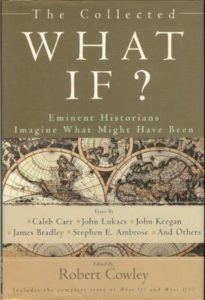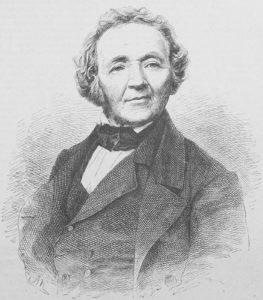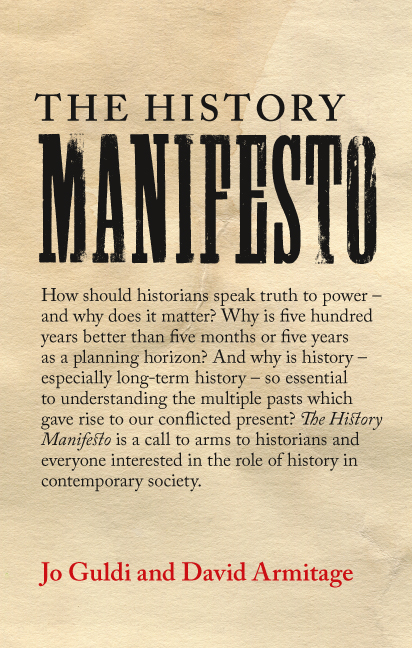This article is part one of a four-part series on the future of quantification in history. For the thematic introduction to the series, please click here.
At face value, it might appear to the casual reader of Play the Past, that the main focus of this blog is the treatment of historical experience in the medium of games.
This is, however, only a first-level reading of Play the Past authors. There is also an undercurrent of analysis on Play the Past that seeks to address the more complicated issue of how games and simulation are impacting the social sciences, and the discipline of History itself.
This concern is shared by many Play the Past “regulars”, as well as guest writers. For example, historian and educator Jeremiah McCall’s very first post on Play the Past tackled the issue of historical causation in history-themed simulation games. In his analysis of Civ City Rome, McCall linked his practice of teaching historical concepts modeled in game mechanics, to hypothesis-making in historical research. McCall went on to write many posts on Play the Past on how to best use games in history education, and even published a book about the subject.

Pushing the educational envelope even further, Trevor Owen’s propositions for ludic pathways into scholarship – required reading if you’re interested in this question – suggest three ways “games media” can serve historical research: to reach broader audiences, to operationalize models of change and causation, and to breach the limitations of linear narrative. Owens’ own playful approach to “serious” games with history students suggests creative ways historians might enhance their toolbox – despite the many hang-ups scholars still have toward games culture.
On the theory front, digital media scholar Mark Sample’s great introduction to “platform studies” demonstrates how a multi-layered analysis of simulation media can also serve as a rich mode of historical investigation into technological culture. Attentive to complex issues of mediation, Sample has also explored in his writings the new culture of digital evidence in play spaces, and the possibilities (and perils) of historical revisionism opened up by digital media. In a similar vein, one of Play the Past’s most prolific authors, Peter Christiansen, has critically reviewed the deterministic assumptions of “historical development” in many history-themed games, most especially strategy games. Christiansen’s analysis of game mechanics as historical frameworks, highlights the way many historians today distance themselves from commonly-held ideas of “historical progress”.
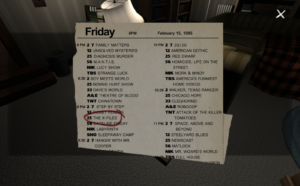
Play the Past guest authors have also been fruitful contributors to the dialogue between game culture and historical research. Andrew Salvati’s address to the International Network for the Theory of History (INTH) in 2013, excerpted on Play the Past, examines the conflicted status of historical narrative, fudging the boundaries between play and research. In a similar same vein, Richard Bell’s analysis of 2013 sleeper hit Gone Home drew attention to the game’s mimicking of the process of historical research, in a dramatic setting. Perhaps more in line with the argument I will be presenting below, Jim McNally, President and Lead Designer at Longbow Games, previously discussed the process of “caricature” – or ideal-typing – required in designing game mechanics that reference historical facts. Finally, my own article on the current popularity of Civilization-style strategy games, highlighted how deep-seated philosophies of “historical progress” still run unchecked in both academic research and popular media.
Counterfactual History: Here to Stay
Perhaps the best example of gaming culture’s cross-fertilization with historical research is the burgeoning field of counterfactual thinking in academia and popular fiction, in which games and simulations play a leading role. As Wikipedia defines it:
“Counterfactual history, also sometimes referred to as virtual history, is a form of historiography that attempts to answer “what if” questions known as counterfactuals. Black and MacRaild provide this definition: “It is, at the very root, the idea of conjecturing on what did not happen, or what might have happened, in order to understand what did happen.” The method seeks to explore history and historical incidents by means of extrapolating a timeline in which certain key historical events did not happen or had an outcome which was different from that which did in fact occur. It has produced a book genre which is variously called alternative history, speculative history, or hypothetical history.”
Though controversial amongst historians, the counterfactual approach has gained a sufficient foothold to become established practice, at least to the more experimentally-minded academics, and top brass in military and business schools. As a result, many mainstream historians in the English-speaking world today argue for a more diligent and qualified use of counterfactual “method” in historical research, rooted in historical evidence.
But here’s the thing. Beyond this overall trend – and the many themes identified above – there are harder-to-detect affinities between games “media” and historical understanding that have, in my opinion, not yet been adequately voiced. And the nexus of issues contained in them could have a decisive impact on the future of historical inquiry. These undercurrent affinities manifest themselves in the malaise of Total History that regularly plagues the discipline, despite the best of intentions. Put simply, whenever historians seek to master the human event-horizon with exhaustive understanding, they inevitably default back to good old storytelling. And digital games, of all things, uniquely manifest this mania of omniscience – and its contradictory result – into one swell package.
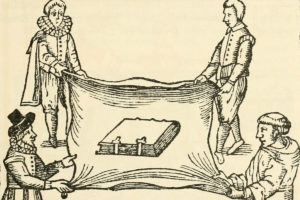 It is my contention that the latest quantification craze in our culture will only prove this more so. And as I am hoping to persuade you, this below-the-radar issue of narrative “bias” in quantification deserves a fair hearing, considering where we are headed in both historical research and gaming culture. If there’s a single salient reason why you should read on, that would be to bear witness to the coming unification of the social sciences under Big Data – or, see how games might prevent this horror, and contribute to the renewal of the humanities.
It is my contention that the latest quantification craze in our culture will only prove this more so. And as I am hoping to persuade you, this below-the-radar issue of narrative “bias” in quantification deserves a fair hearing, considering where we are headed in both historical research and gaming culture. If there’s a single salient reason why you should read on, that would be to bear witness to the coming unification of the social sciences under Big Data – or, see how games might prevent this horror, and contribute to the renewal of the humanities.
History: Misfit of the Knowledge Economy ?
There are many signs that university disciplines are about to undergo a major shift in the next decade or so. For one, with changes in workplace demographics and an overall increase in university populations, universities are under intense pressure to specialize in order to attract their “core clientele” – either first-time students looking to complete basic or advanced degrees, or returning professionals, in the middle of a career transition. Changes in the university’s “DNA” have also been noted, from many quarters. As universities are set to become the research powerhouses of our globalized knowledge economy, they have set about to restructure core university disciplines to fit emerging vocational standards and attract top students and researchers at home and abroad.
 Now for the “trickle-down” effects. The structure of research funding, and the competition over university funds has also caused a lot of soul-searching for those traditional disciplines not attached to professional training, or “fundamental” research – namely, the humanities. In order to preserve themselves from the fate of their Japanese brethren, traditional humanities disciplines have attempted a face-lift to keep up with the times: witness the rise of “digital humanities” departments, conferences, associations and advocacy groups. For the moment, the humanities are staying “current”, and are being sold to career-minded folks as unique pathways to complex workplace “soft” skills.
Now for the “trickle-down” effects. The structure of research funding, and the competition over university funds has also caused a lot of soul-searching for those traditional disciplines not attached to professional training, or “fundamental” research – namely, the humanities. In order to preserve themselves from the fate of their Japanese brethren, traditional humanities disciplines have attempted a face-lift to keep up with the times: witness the rise of “digital humanities” departments, conferences, associations and advocacy groups. For the moment, the humanities are staying “current”, and are being sold to career-minded folks as unique pathways to complex workplace “soft” skills.
Amidst this turmoil, it is no secret that the discipline of history has been doing a lot of soul-searching. Interestingly, this is not directly tied to the structural changes listed above, but rather to the dual status of history as both a social science and a humanities discipline. The chaotic trends in our global economy and techno-culture are only exacerbating the crisis long-felt in history departments. We only need to look at how the discipline describes itself, to find the innumerable fault lines cracking the edifice. Indeed, take a “Introduction to Historiography” course in any major university, and you’ll be confronted with the following (simplified) picture of the discipline:
- Until the nineteenth century, “history” was for the most part a specialized branch of rhetoric destined for elite consumption.
- History turned into a profession in the nineteenth century by claiming for itself the status of a “science”. In order to do so, its main practitioners had to devise of standards for writing objective history. To bolster the legitimacy of the modern nation-state, historical production also sought a more mainstream audience, beyond national elites.
- From historical materialism, to long durée social history, to “cliometrics”: every major new “school” of historical research in the twentieth century repudiated its nineteenth-century forebears as “positivistic” (i.e. falsely factual), while promoting new ways of making history… more “objective”. From the 1930s onwards, historical readership split into professional and enlightened amateur audiences.
- Postmodern critics from the 1970s onwards emphasized the narrative nature of all historical writing, and the partiality of every historical fact. The discipline of history has since become fragmented into various camps – cultural history, new social history, microhistory, etc. – and succumbed to hyper-specialization. Outside of academia, historical “consumption” is now for the most part a mass culture phenomenon.
Historians of the World, Unite!
Slow moving institutions like universities aren’t necessarily the best places to see the coming tidal waves of change. But to the few professional historians who have sought to analyze the deeper trends of institutional change, the following picture has become evident: history is poised to become either a fully-fledged social science – and be invited to the policy table – or go the way of “digital humanities”, and continue to argue its “relevancy” in the face of diminishing funding.
Or at least, this is how I am reading the claims of academic historians. Take Jo Guldi and David Armitage, authors of the recent History Manifesto. Guldi and Armitage, both professional historians involved in the advocacy of their discipline, are spearheading a movement to upgrade the discipline of history to the status of policy advisory. Historians, Guldi and Armitage argue, are specialists trained in the analysis of social change through time (diachrony). As such, in a world stuck in chronic short-termism, with political elites incapable of fathoming the long-term crises that cloud the future of humankind – climate change, global governance and inequality – historians are poised to be increasingly in demand in the near future, by virtue of their unique training and skill-set.
To be sure, Guldi and Armitage’s advocacy for historians as courtiers to power – or as they put it, as a “counter-balancing” to the domination of near-sighted social scientists in elite think tanks – is controversial, if not questionable. And I would argue that their appeal for the “niche expertise” of professional historians is, on a deeper level, symptomatic of the erosion of the humanities as a tradition in the modern university, and in our wider culture. Put in starker terms: if you peer under the hood of their apologia, you will see that Guldi and Armitage are advocating for nothing less than the absorption of history into the regime of Big Data.
The tell-tale sign of this is their treatment of Big Data as a “tool” – for research, analysis, and experimental modelling. Certainly, Big Data “tools” are poised to enrich the possibilities for comparative history-making. There is, however, no reflexive treatment of the impacts of Big Data on historical thinking in the History Manifesto. Guldi and Armitage’s argue that the “tools” of Big Data will bolster long-held habits of historians, and enhance their relevancy. To be sure, comparative analysis of massive and diverse sets of historical data will allow historians to propose, as a matter of course, multiple theories of causality. Thus as interpreters of “complex historical data”, historians as social scientists will be uniquely positioned to help policy makers interpret complex cause and effect.
But let’s be frank. At bottom, Guldi and Armitage are making the case for a new type of futurology, avec les historiens. To them historians are the type of data experts best equipped to make judicious, “non-reductive”, use of Big Data. Certainly, this is a sincere, if not clever way of reinvigorating a discipline finding itself with less and less of a basis for claiming that it is engaged in “fundamental” (i.e. non-utilitarian) research. But lest I repeat myself, these appeals will also further push the academic discipline of history over the edge of the social science and humanities divide, squarely in favor of future “governance” disciplines.
Historians beware: Big Data is a not mere “tool”, it is a Zeitgeist.
Big Data: Sink or Swim
 In response to such capitulations, I would like to argue for a new way of broaching the knowledge divide that has long beset the discipline of history, for the reasons already outlined above. In the next articles of this series, I will go straight for the Big Data jugular. Like my Play the Past forebears, I will take an experimental stance and play with the Zeitgeist, in order to present the humanities from a position of strength, rather than weakness.
In response to such capitulations, I would like to argue for a new way of broaching the knowledge divide that has long beset the discipline of history, for the reasons already outlined above. In the next articles of this series, I will go straight for the Big Data jugular. Like my Play the Past forebears, I will take an experimental stance and play with the Zeitgeist, in order to present the humanities from a position of strength, rather than weakness.
The program will go like this.
By looking at three “case studies” of game design around the theme of human survival, I will argue that there is an irrepressible need for story – or “narrative” – implicit to all social sciences. Specifically, I will demonstrate that a strange “return of narrative” is brewing in Big Data-boosted history, resulting from having pushed the quantification gambit to its limits. And, as I’ve said above: there’s no better place to see this than in digital games.
Why? Because of the way the social sciences design their experiments. In a nutshell: in order to have explanatory value, the aggregate behaviors studied by social science must first be “packaged” into abstract concepts – or to use Max Weber’s term: ideal-types, so that they may be tested, as hypotheses, against the mess of real-world behavior. Put simply: sociology, economics and statistics cannot function (i.e. explain real-world phenomena) without transforming “social actors” into aggregate concepts, or ideal-types: “gender”, “social class”, occupational types, age groupings, etc.
This is where digital games come into the equation, and survival games in particular. The core of any digital game is the gameplay loop – the set of actions a player must repeat over and over again, with incremental difficulty, in order to master the game, or complete its objectives, or story. Going forward, my central hypothesis will be that the gameplay loops of realism-oriented survival games generate stories in ways that mirror the construction of ideal-types in social science. If survival game protagonists have character traits bestowed upon them for fictional purposes, the problem space in which they evolve in realistic survival games renders them anonymous by virtue of both the survival theme, and the inherent replayability of games. Result: out of survival “sandbox” gameplay emerges an abstracted, archetypal character: “the survivor”. This is history, degree zero : someone must survive in order for stories to live. Yet, the reduction of story to mere “acts of survival” renders anonymity back onto the player, where individual stories dissolve into an aggregate form.
At this point, the reader may reasonably object that all games contain gameplay loops, and that ludic problem-spaces can be themed in fictional guises that don’t require realism. What does the survival theme have to offer in particular that fantasy or science-fiction genres don’t?
The answer has to do with historical method. More specifically, the very conditions that make a historical subject possible, to begin with. Survival sandbox simulations hard-code the basic scenario that is irreducible to all historical writing. The fail state of a survival sandbox game means that there is no survivor, and therefore no historical subject. Success means that players are able to master the problem-space – specific to each survival game – as a generic story of survival. And the realism of the problem-space, in turn, brings to the fore an awareness of the contingencies of historical experience. In other words, players that “beat the survival game” access the dignity of the historical subject: the privilege of telling one’s story, as an individual, group, or culture.
History, in a nutshell.
To recap: I am proposing that survival simulators can be seen as social science laboratories that model the conditions for human storytelling, in aggregate form. Surviving potential annihilation and carrying the memory of the ordeal forward take on a generic, anonymous aspect because of the replayability of survival sims. Their relevance to historical method are thus inscribed in their very premise.
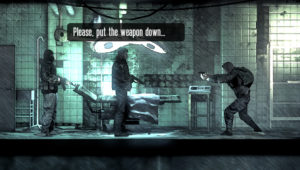
In the next three articles, I will examine three different examples of digital storytelling in simulations that posit the problem of survival (and extinction) as their core narrative premise. To this end, I will analyze each survival “sandbox” (or problem-space) from the standpoint of narrative design. I will then tie the thematic features of each survival sub-genre to a type of aggregate actor – solitary, small group, or culture group – in order to connect the different story forms to experimental models in the social sciences. My aim, once again, is to demonstrate how the storytelling qualities of digital media mirror the Big Data Zeitgeist, to use the “micro” scale to shed light on the “macro”.
To say the least, this is a peculiar outcome to the quantification craze we are currently experiencing in our culture. If you’ve followed me all the way here, then perhaps you’ll agree with me that we need to shed much-needed light on our relationship to data, and “information” (i.e. simulation) technology. If anything, it is our irrepressible need for pattern, and meaning – the real “survival” hero in this story – which needs to be rescued from the clutches of Big Data. And if only experts – professional historians included – are to be equipped to swim in the maelstrom of numbers, then let’s just say that we haven’t learned a thing from all these years of experimenting in the digital playpen.
Let Big Data take over, it will make us into data points, into social objects. And for the moment, sadly, we seem unperturbed at the loss of our subjecthood, in exchange for these “gains”.
References
Guldi, Jo and Armitage, David, The History Manifesto (2014)
Munslow, Alun, The Future of History (2010)
Prost, Antoine, Douze leçons d’histoire (2010)
Romanyshyn, Robert D., Technology as Symptom and Dream (1989)

